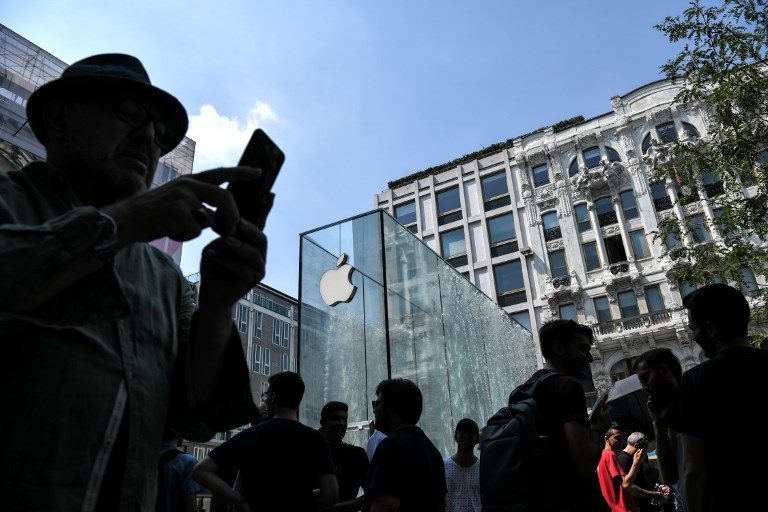SUMMARY
This is AI generated summarization, which may have errors. For context, always refer to the full article.

MANILA, Philippines – In July 2018, Apple terminated its exclusive partnership with Qualcomm to have the chip-maker supply modems for its iPhones. But even before that, business between the two was somewhat on track to go bad as both companies have, over the years, filed lawsuits against each other for a whole host of reasons.
More details have now emerged of their soured partnership from the US Federal Trade Commission’s (FTC) trial against Qualcomm.
The chipmaker was accused of monopolistic tactics and business practices by the FTC which centers on how it forced Apple to work with it exclusively and made it pay expensive licensing fees for its chips, as reported by CNET.
Although Apple makes its own processors for its iPhones, it still relies on third-party companies to supply its modem chips.
Apple said the original plan was to order chips from both Qualcomm and its competitor, Intel. But Qualcomm, as the trial took place, would not sell Apple its chips so it was forced to contact Intel, and ask them to supply them with additional chips. “The strategy was to dual-source in 2018 as well,” Williams said Monday. “We were working toward doing that with Qualcomm, but in the end they would not support us or sell us chips,” Apple chief operating officer Jeff Williams said when he testified in court.
Qualcomm executives denied these claims and stated in numerous occasions that they were always open to work with Apple.
New supplier
With Qualcomm out of the picture, Apple launched its latest iPhones with Intel chips inside.
As a previous report has also mentioned, the Cupertino tech giant will depend on Intel to develop 5G modem chips for iPhones – a move that may have hurt Apple’s chance to launch a 5G phone in the market by this year.
Intel is not expected to have a 5G chip until 2020 which may be the reason why Apple will reportedly release its 5G handset much later than its competition.
Licensing fees
In the trial, Williams also revealed that Apple paid Qualcomm $7.50 in licensing fees per device.
While the report adds that it’s common practice in the mobile industry for patent holders to base their licensing fees from the total value of the device, Apple said that the value was far from what they thought was fair and was 5 times higher than the $1.50 per device fee they initially expected to pay.
Qualcomm in 2013 wanted to increase the royalties but Apple negotiated to keep it the same. The agreement included exclusivity clauses that restricted Apple’s ability to use a different supplier.
“We were staring at an increase of over $1 billion per year in licensing, so we had a gun to our head,” Williams said. – Rappler.com
Add a comment
How does this make you feel?





There are no comments yet. Add your comment to start the conversation.